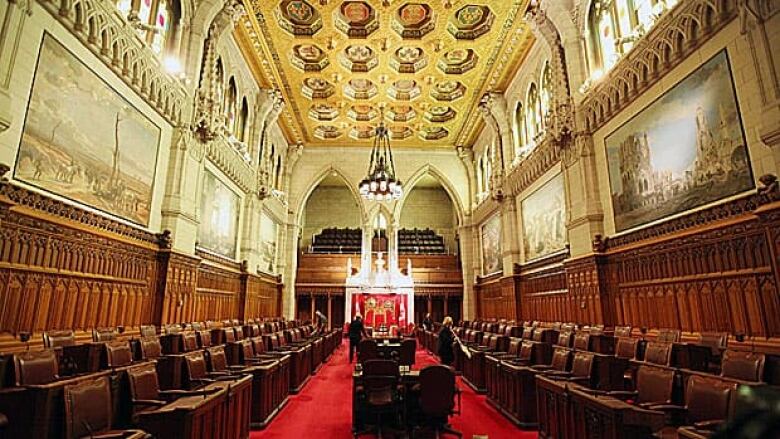MPs debate NDP motion to abolish 'useless' Senate
Non-binding motion unlikely to get needed government support

MPs are debating a non-binding NDP motion to eliminate the Senate, as controversy continues over the expenses claimed by some senators.
Opposition parties are allotted a certain number of days every year to set the topic of debate. The NDP is using Tuesday to discuss abolishing the Senate. The motions debated on supply days are not binding on the government even if the majority of MPs vote in favour of the motion.
A vote on the motion will come Wednesday after 6 p.m. ET, along with a vote on a Bloc MP's private member's bill torepeal the Clarity Act.
New Democrat MP Craig Scott, who put the motion in front of the House,said the Senate is "useless" and senators appear in the upper chamber an average of 56 days a year.
"There are good senators, who we hope to work with . . . they realize that the Senate is an illegitimate body when it comes to blockingbills comingfrom the House of Commons," Scott said.
NDP deputy leader David Christopherson spoke about the uneven distribution of seats, whereprovinces with much larger populations, like British Columbia and Alberta, have the same number of seats as provinces with much smaller populations, like Newfoundland and Labrador. Christophersonsaid reforming the Senate to elect senators, as the Conservative government proposes in Bill C-7, would only entrench its power.
"In a democracy, you shouldn't be able to vote on laws unless you're accountable," Chrisopherson said.
Christopherson also said C-7 is a flawed bill because it doesn't correct the 30-year-old minimum age requirement for a Senate seat, calling it "completely unacceptable, undemocratic."
Conservatives promised Senate reform
Tim Uppal, minister of state for democratic reform, accused the NDP of wanting to preserve the power to appoint senators if they take office. Both parties accused each other of political stunts.
Conservative MP Michael Chong, who has proposed his own parliamentary reforms in the past, says there are a number of problems with the NDP's proposal.
"In many people's expert opinion, abolition of the Senate ... is a fundamental constitutional amendment and as such would require the unanimous consent of 11 legislatures in this country, all 10 provinces and the Parliament of Canada," Chong said.
Representation in the Senate was part of the deal that brought the provinces into Confederation, he added.
"For the opposition to so blithely and so casually suggest that we abolish the Senate, I think really shows remarkable ... naivetor frankly irresponsibility. . .These provinces today would likely never agree to the abolition of the Senate for the fact that it guarantees them a certain representation."
Prime Minister Stephen Harper, who came to power promising to reform the Senate and not to name any senators until it was reformed, last monthasked the Supreme Court to answer questions aboutthe government's power to reform or abolish the Senate. He has named 58 senators since he became prime minister.
The court is being asked whether the Senate Reform Act is constitutional, as well as about the constitutional amending procedure for changes to the net worth and property qualifications for Senate nominees, which were designed at the time of Confederation.
The government's Senate reform bill would limit senators' terms to nine years and allow the provinces to hold elections to choose senators. The Governor General would then, on the advice of the prime minister, appoint senators who had been selected through provincial elections.
It's unlikely Parliament would make any changes to the Senate before the Supreme Court rules on the government's ability to do so.
The motion comes asexternal auditors look at the travel and living expenses of four senators, Patrick Brazeau, Mike Duffy, Mac Harb and Pamela Wallin.












_(720p).jpg)


 OFFICIAL HD MUSIC VIDEO.jpg)
.jpg)



























































































